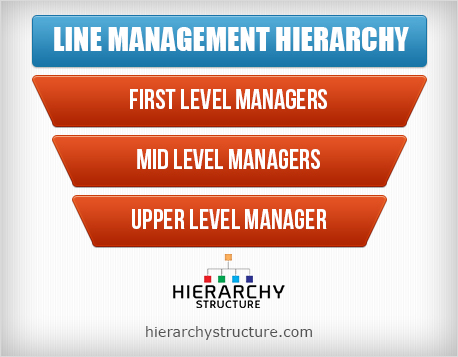Line management as the name suggests is the management or administration activities associated directly to the “line” of business that is the company specific goods and services. In the organisational framework the hierarchical status or position held by Line Managers in the vertical chain of command is over a particular product. These managers are responsible for or in charge of the whole gamut of functions prescribed and/ or needed for a specific business line or a functional area.
The organisation should definitely take a good care of its line management as they affect the functioning of all the other departments of the organisation. In fact the line management is responsible to reduce or check the risk associated with the products of the company. They are the frontrunners in bringing about a change in the organisation. The following are the hierarchical demarcation of line management in a typical organisation.
First Level Managers
The lower level managers also referred to as the first level managers and are at the bottom of the Line management hierarchy. They are responsible for the basic work of the line management chain and work as the connecting link between the non-managerial employees and the manager level employees. They are mostly the supervisors of the organisation and look into the day to day activity of the organisation’s business. Their main functions include:
- Looking after the work force’s HR needs
- Budgeting
- Scheduling
- Basic disciplinary measures
- Issues orders to the non-managerial employees and supervise their work.
- Assign and classify tasks to the non managerial staffs or employees.
- Ensure the proper functioning of the tools and machineries and also their maintenance.
- Convey the problems face by the organization to senior managers etc. thus creating the base for the top management to work upon.
Mid Level Managers
Just above the First level managers are the mid level managers. They are senior to the former in terms of experience and expertise. They form a connecting link between the lower and the upper level management in the line management hierarchy. These managers are responsible with the day to day managerial activities and the problems faced by the lower level managers. They have a strong analytical acumen and are hence capable of solving the problems. They can be regional managers but in most of the cases they serve as the general manager or the line manager of the company.
- Responsible for interpreting and implementing the policies as decided by the top managers.
- Solving the problems faced by the managers at the lower level.
- Ensure the smooth functioning of all the departments in the organization.
Upper Level Manager
These managers the top executives of any organization and their work depend on the input provided by both the middle level manager and the lower level managers. They are responsible for taking all the crucial decisions regarding the company’s future business development. Chief financial managers, chief executive officers and all the other top leaders of the company are responsible for the vision of the company and in taking all the important decisions. They are responsible for the strategic decisions of the company.

